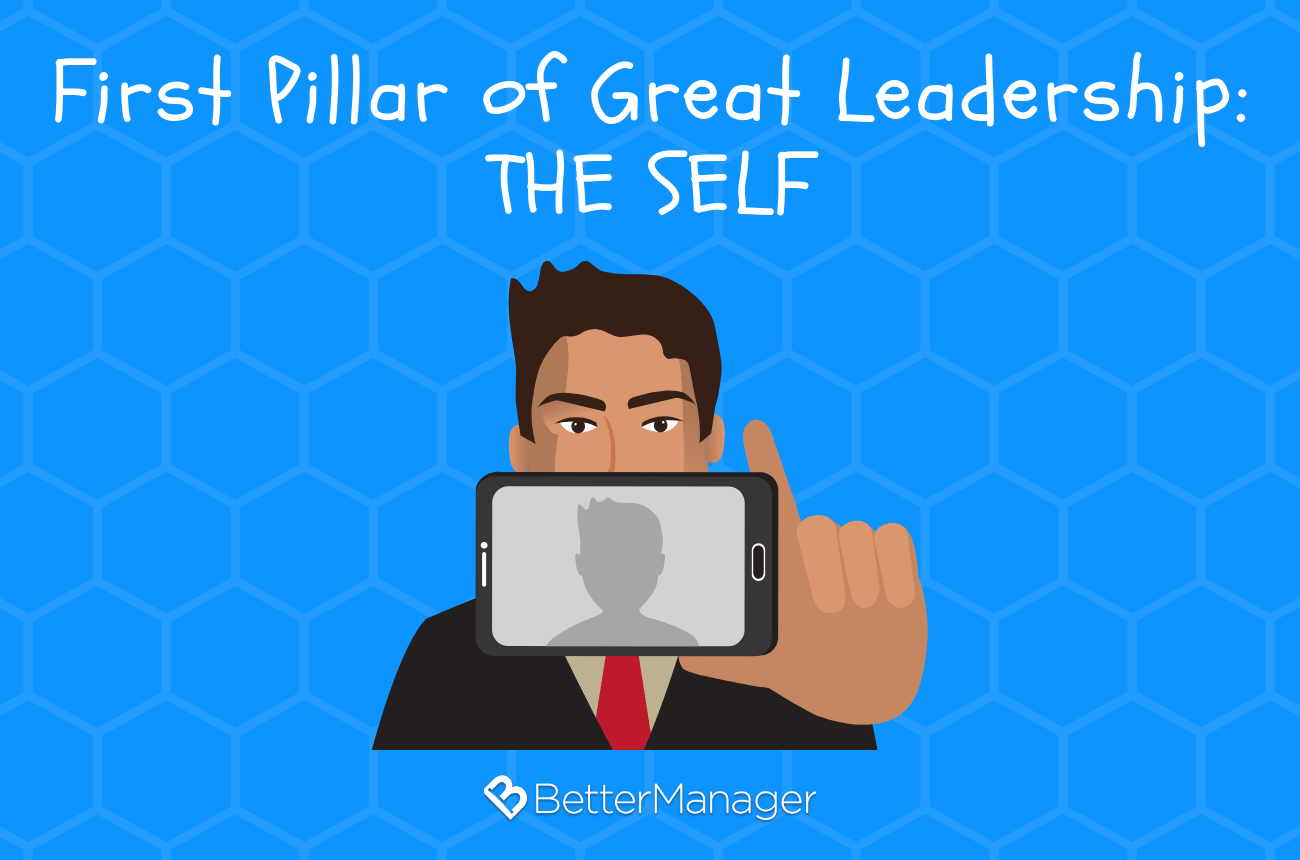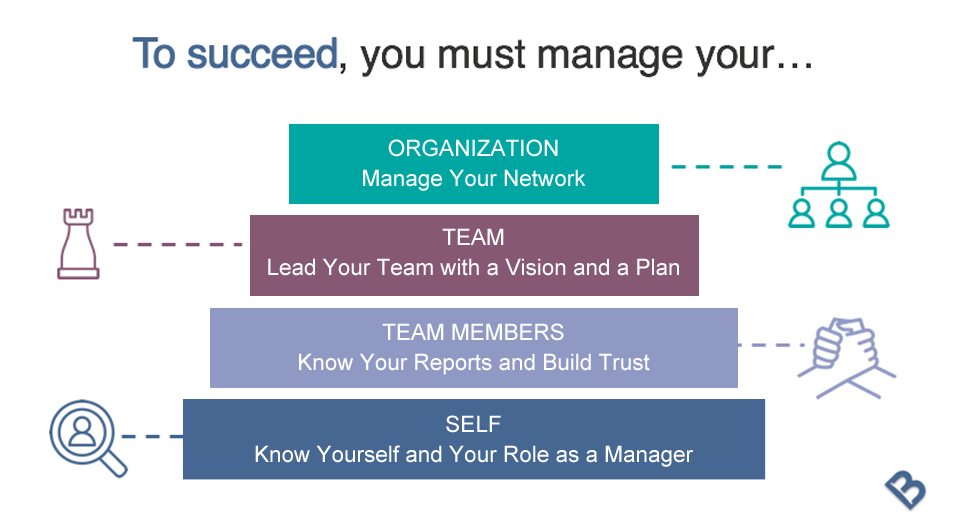
It’s a quest. Becoming a Better Manager isn’t a quick jog, it’s a lifelong journey of discovery and mastery. And in that quest to become the best manager you can be, you will need to build four pillars that will support you, your team members, the team as a whole and the entire organization.

We chose these four pillars because both the research, and our experiences working with managers, show that these four areas are critical in your development as a manager.
Each pillar is foundational and they are all interdependent, consisting of behaviors and practices that the best managers learn to apply and perfect.
This is the first of four blog posts that will examine each pillar in turn. For this opening message, we will emphasize the importance of understanding yourself. The second blog post will look at the ways in which you can support the individual members of your team. Next, we will discuss your leadership role as you manage the entire team, and in the final blog post we will examine the manager’s role in the context of the entire organization.
Let’s begin with talking about how important it is to “know thyself”.
It all starts here, understanding who you are, your strengths, limitations, emotions and how to manage yourself as you manage others. We’d like to raise three main questions to help you evaluate how well you know yourself.
Perhaps you have taken some self-evaluation tests to discover whether you are an introvert or an extrovert, a “gold” organizer or a “blue” people person. You may have learned to multi-task by yourself, or perhaps you prefer to work with other people and divide up the tasks. Your value system has probably evolved over the years and may include love of home and family, commitment to the environment, treating people equally no matter what their background, and so on. And you are also no doubt aware of what triggers your emotions…the things that make you angry, the things that make you sad, or what makes you cry. Your personality traits, your attitudes toward the home, the environment and other people, and the way you manage your emotions, will all affect the way you conduct yourself as a manager.
Before you manage others, it’s wise to be sure that you know how to manage yourself. For example, do you manage your time well? Many of us treat time as the enemy and feel as though we must constantly watch the clock. Issues of self-control may come up if you find your emotions ruling your behavior…or you find yourself indulging in chocolate. Whereas you may get irritated when people remind you about balancing mind, body and spirit, perhaps those people are right! Take a hard look at how much time you spend looking after your health: exercising, eating real food and relaxing. As you review all these points (perhaps with reluctance because you are too busy to think about them), it’s a good idea to start making lists of self-management strategies. Making lists, in itself, can lead to self-management. There are many ways to learn self-discipline, self-control and self-appreciation, and if you can develop in those ways, you will bolster your self-confidence.
Not all people who are self-confident around their families can transfer that to the workplace. Many of your unique personality traits, belief systems and emotions will travel with you as you take on the role of a manager. But, the person you are with your friends and neighbors may not be the same as you, the manager. Much may depend on the level of self-control you bring to the office, or how you imagine the position of manager should act out. Managers who are naturally comfortable with people can build relationships easily; managers who get angry quickly will need to reign in their own emotions first, before they can lead others. There may be conflicting demands between the family that you cherish and the dedication you have for your work, so recognizing those internal conflicts will help you to find coping mechanisms. Whether you are fun-loving or a disciplinarian, a pro-active list-maker or a re-active decision-maker, you must know who you are as a manager to be effective in working with your team members.
The first pillar of “Self” needs a lot of attention. If you know that you need to develop some aspect of yourself in order to become a Better Manager, we are ready to assist.
We also want to help you to manage individual staff, oversee entire teams and interact with the organization as a whole.
Want to read about the other 3 Pillars?
Download the Four Pillars of Great Management Ebook!